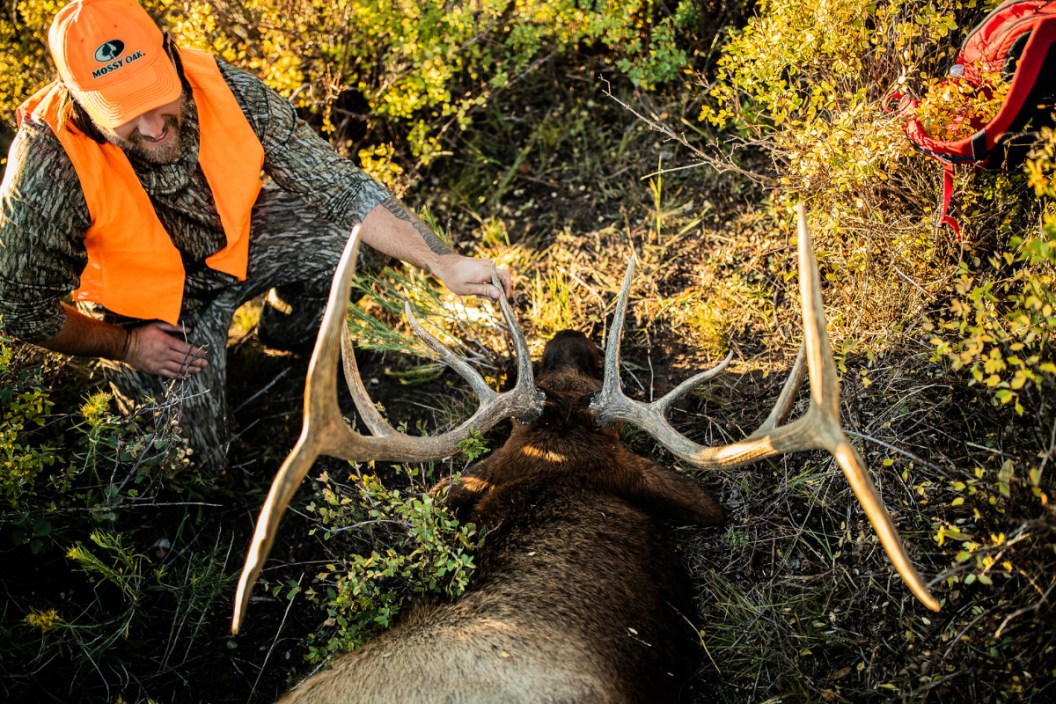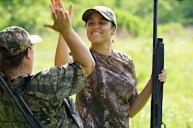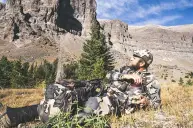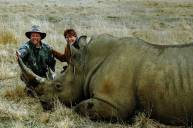We constantly hear sportsmen and women talking about how hunters and anglers help conservation efforts and wildlife management. It is one of the largest selling points we use to defend hunting from its many detractors. Sadly, many people simply do not understand the important role hunting plays in wildlife conservation and the preservation of our wild areas for future generations to enjoy.
So, let's examine the hunter's role in wildlife conservation a little more in-depth. Because we really need to articulate to non-hunters better how hunting helps protect and preserve the animal populations we all know and love.
It also will help them understand hunting is not simply something people do for fun or food. It is a serious wildlife management tool. One that is necessary if we want to preserve this planet's natural wonders.
A quick primer on the goal of conservation.
So, before we get into a hunter's role, a quick refresher on exactly what conservation means. Basically, all plant and animal species are renewable resources that theoretically can be replenished indefinitely. Sadly, throughout history humans have proven to be extremely harmful to various wildlife resources in certain situations.
In the 1800s here in North America, a bevy of hunters, trappers, and explorers hunted big game animals like the eastern elk into total extinction. This was prior to the development of state wildlife agencies and hunting regulations. With no bag limits, animals like the whitetail deer, wild turkey, and the bison came dangerously close to being wiped out completely. Only the implementation of fixed hunting seasons and the elimination of market hunting saved the dwindling number of animals in some areas.
Different conservation programs have also led to the development of our extensive public lands systems which preserve some of our nation's prime wildlife habitat. This benefits both game and non-game species alike. Iconic places like Yellowstone or Yosemite National Parks would not exist if not for a handful of forward-thinking people recognizing the value of these ecosystems and taking steps to make sure they were not lost forever.
Simply put, the goal of conservation is to protect wild animals and the places they inhabit from destruction, so we can always enjoy them.
So, what's the hunter's role?
Hunting and conservation go hand-in-hand, and there are many ways hunters contribute. However, the biggest contributor is simply as a funding source through the sale of hunting licenses and other goods. Thanks to things like the Pittman-Robertson act, also known as the Federal Aid in Wildlife Restoration Act. Basically, it is an excise tax on the sale of firearms and ammunition. The money goes to the U.S. Fish and Wildlife Service who then doles it out to the states for things like hunter education, habitat restoration, and scientific research projects.
This is not the only program like this. There is also the Federal Duck Stamp. These are sold by the U.S. Department of the Interior every year and are required to hunt waterfowl. The money generated from this stamp goes towards acquiring and preserving prime wetlands habitat that a variety of wildlife species call home.
Then there are the funds generated from hunting licenses in every state. That money helps to directly fund the different state wildlife agencies. Funds from licenses may go towards anything from maintenance of your local state park to the salary of the game wardens that enforce hunting laws.
However, it is not solely about money. Under the North American model of wildlife conservation hunters also have a vital role in keeping wildlife populations in check. Without hunters, things like the deer population would explode out of control, causing more unwanted human/animal encounters like collisions with vehicles. We are increasingly seeing problems like this with animals like coyotes who wander into urban areas where they are a danger to children and pets, making the hunter's role of overpopulation control even more important. Speaking of overpopulation, it can be a problem in areas with no natural predators too. If there are too many animals such as deer, they can be a detriment to natural resources, decimating their wild food sources and then causing damage to farmer's crops. In a worst-case scenario, the deer may exceed an area's carrying capacity and starve to death because they have depleted their food sources.
Hunters also help conservation organizations and biologists paint a more complete picture of animal populations with checks of their harvested animals. State agencies use the data from these checks and hunter surveys to paint a more complete picture of animal populations. From there, they can make more informed decisions in their wildlife conservation efforts.
While it may not seem like it to some non-hunters, our nation's sportsmen and women play a vital role in helping to maintain wildlife populations and the beautiful spaces we all know and love. Consider sharing some of this information the next time someone asks you why you hunt. You just may convert someone who does not understand hunting over to our side!
For more outdoor content from Travis Smola, be sure to follow him on Twitter and check out his Geocaching and Outdoors with Travis YouTube channels.
NEXT: THE AXIS DEER AND HOW THEY'RE IMPACTING PARTS OF THE UNITED STATES
WATCH





